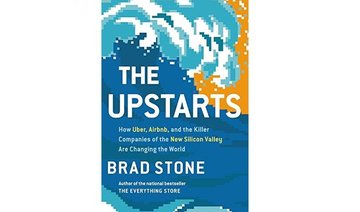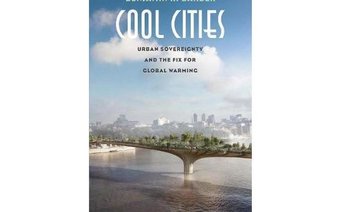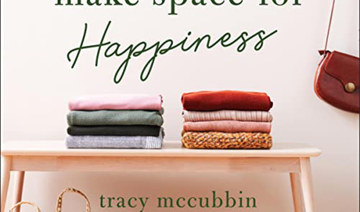“The Baghdad Eucharist” tells the heartbreaking tale of a Christian family in Iraq who must navigate through the ups and downs of life, political upheaval, religious strife and war. Sinan Antoon, a well-known novelist and translator and an award-winning poet, has written four previous novels and two collections of poetry. This novel was first published in Arabic in 2012 and was shortlisted for the International Prize for Arabic Fiction in 2013. It has now been translated by Maia Tabet, a journalist and translator.
Antoon first introduces the reader to Maha and Uncle Youssef while they are embroiled in a heated argument. Maha accuses Youssef of “living in the past” and Youssef struggles with the harsh truth as he moves forward.
Youssef is in his seventies and tends to live in the past as much of his life has passed. Maha, in her twenties, has only known war and struggle, unlike Youssef who has witnessed life before the wars and strife. He himself admits that he holds the past hostage within his house — in picture frames and mementos — so that he never forgets that there once was a time when life in Iraq was not tragic, not reduced to “car bombs, brutality and horror.”
Within the confines of Uncle Youssef’s house is the entire life of a family who has lived happily and healthily, worshipping at the Chaldean Catholic Church, supporting each other through happiness and pain. Youssef is the only remaining sibling in Iraq, much to the dismay of his brothers and sisters. Hailing from a large family, Youssef is uninterested in leaving his home, the only place that holds the memories that he cherishes so deeply. Having recently lost his older sister, Hinna, he is now inclined to continue to live in his family home, despite the fact that he only has one friend left in the world and most of his family live abroad.
Antoon’s book reveals a narrative not often visited — one of an Iraqi Christian family who are as much a part of Iraq as its palm trees. They have been devastated by Iraqi politics and war and laying their claim to Iraq has become much more difficult than it once was. They drown in words such as “infidel” and are under suspicion for being American sympathizers because of their religion. However, Youssef knows that “Iraq belongs to everyone.”
Antoon masterfully explores the opinions and perspectives of different generations in this book. The book is a moving account of a family that may now be gone but whose memories live on. Antoon’s love for Iraq is shown through his characters, their demeanor, their arguments and their insights.
His book moves through the early half of the 20th century to the invasion of Iraq in 2003 and beyond. War is ever-present, for example, Youssef first meets Maha in the basement of a supermarket as American fighter jets “pounded Baghdad so hard that the earth shook” during the Gulf War in 1991. She is an inconsolable child in her mother’s arms and Youssef walks around with his transistor radio listening to the news. Youssef manages to ease Maha’s fear but the tragedy is not over yet. War will continue throughout their lives and it is up to them to ease their own pain.
The horrors of war and dictatorship are not lost on the family. As Maha says, “all I want is to live with dignity and to be treated like a human being.”
Antoon’s story is told through photographs and memories, people and places imprinted on the fabric of time. Like the date palms that Youssef loves so much, Antoon’s characters have embedded themselves into the soil of Iraq and taken root. Their stubborn desire to live through difficult times is painful but courageous.
The story of Iraq cannot be told without tragedy and strife. It is a country that has been drowning in political turmoil for decades but its residents have lived through it and continue to do so. Even generations who have moved on, who have grown up elsewhere, remember their roots and the origin of their stories. This book tells a painful story, but it is also hopeful. Youssef’s hope for Maha, that “her wounds would heal and she would retain only what was best,” also mirrors what many Iraqis wish for their homeland.
Book Review: The powerful story of a Christian family in Iraq
Book Review: The powerful story of a Christian family in Iraq

What We Are Reading Today: ‘Breaking the Mold’

Authors: RAGHURAM G. RAJAN AND ROHIT LAMBA
India’s economy has overtaken the United Kingdom’s to become the fifth-largest in the world, but it is still only one-fifth the size of China’s, and India’s economic growth is too slow to provide jobs for millions of its ambitious youth.
In “Breaking the Mold,” Raghuram Rajan and Rohit Lamba show why and how India needs to blaze a new path if it’s to succeed.
What We Are Reading Today: ‘The Things You Can See Only When You Slow Down’

Author: Haemin Sunim
“The Things You Can See Only When You Slow Down: How to be Calm in a Busy World” offers advice on how to find inner peace in today’s busy world.
The 300-page book, published in 2017, was written by Haemin Sunim, a Korean Buddhist monk, and has sold more than 3 million copies.
The author underwent monastic training in South Korea before spending seven years teaching Asian religions at Hampshire College in the US. The book elaborates on the wisdom he gained from personal experiences as a Buddhist monk.
One of the book’s strengths is its simplicity. The author’s writing style is easy to understand as he presents his ideas in bite-sized chapters, each focusing on a different aspect of mindfulness.
Whether he is writing about the meaning of silence or of gratitude, Sunim’s words resonate with a quiet authority which prompts the reader to pause and reflect on their own lives.
In addition, the book is filled with amazing imagery that complements the stories. The beautiful drawings contribute to Sunim’s narrative and create a sense of serenity and peace.
The author emphasizes the concept of enjoying the little things in life to the fullest, such as drinking a cup of tea in the morning, taking a walk in nature, or having a thoughtful conversation with loved ones.
Slowing down allows people to notice the happiness hidden in even the simplest tasks and moments, he claims.
He also encourages readers to be kind to themselves and offers advice on how people can develop a deeper sense of self-acceptance and self-love, fostering emotional well-being and resilience.
Sunim’s wisdom and compassion are clear. His words remind readers that despite the noise and distractions of the modern world, true happiness can be found when they slow down.
What We Are Reading Today: Out of One, Many

Author: Jennifer T. Roberts
Covering the whole of the ancient Greek experience from its beginnings late in the third millennium BCE to the Roman conquest in 30 BCE, “Out of One, Many” is an accessible and lively introduction to the Greeks and their ways of living and thinking. In this fresh and witty exploration of the thought, culture, society, and history of the Greeks, Jennifer Roberts traces not only the common values that united them across the seas and the centuries, but also the enormous diversity in their ideas and beliefs.
Examining the huge importance to the Greeks of religion, mythology, the Homeric epics, tragic and comic drama, philosophy, and the city-state, the book offers shifting perspectives on an extraordinary and astonishingly creative people.
Century after century, in one medium after another, the Greeks addressed big questions, many of which are still very much with us, from whether gods exist and what happens after we die to what political system is best and how we can know what is real. Yet for all their virtues, Greek men set themselves apart from women and foreigners and profited from the unpaid labor of enslaved workers, and the book also looks at the mixed legacy of the ancient Greeks today.
The result is a rich, wide-ranging, and compelling history of a fascinating and profoundly influential culture in all its complexity—and the myriad ways, good and bad, it continues to shape us today.
What We Are Reading Today: ‘If Cats Disappeared from the World’

- Beautifully written and emotionally moving, it is also a testament to the power of storytelling and reminds people of the deep impact of making personal choices and connections
Author: Genki Kawamura
“If Cats Disappeared from the World” is a novel written by Japanese author Genki Kawamura. The book was published in 2012 and was rated 4/5 by over 75,000 readers worldwide.
Kawamura is a worldwide bestselling author. “If Cats Disappeared from the World” was his first novel, which sold over 1 million copies in Japan and was translated into over 14 languages.
In this novel, Kawamura tells the story of a postman who is diagnosed with an uncurable illness. However, when he accepts his destiny, the Devil appears to him with an unusual proposal. The postman must choose one thing to eliminate from this world for him to live one more day. During his journey, the postman then starts examining the true value of everything he owns.
Kawamura’s writing style is simple yet evocative, inviting readers to dive deep into the layers of their own emotional journey with every page. The narrative provides a delicate balance between moments of happiness and sorrow, using cats as a symbol of companionship and joy.
Moreover, the book allows readers to reflect on the value of relationships and experiences. It raises questions regarding the decisions people make, the legacies they leave behind, and the core meaning of everyday moments, which eventually shape people’s characters and how they think.
The novel encourages people to take a deep breath and reflect on the blessings people have, yet neglect, due to their busy lives.
With Kawamura’s thoughtful message and memorable characters, this novel is a compelling exploration of the human experience, providing comfort and inspiration, and a new appreciation for the beauty and brevity of life.
Beautifully written and emotionally moving, it is also a testament to the power of storytelling and reminds people of the deep impact of making personal choices and connections.
What We Are Reading Today: ‘Chinese Espresso’ by Grazia Ting Deng

Italians regard espresso as a quintessentially Italian cultural product—so much so that Italy has applied to add Italian espresso to UNESCO’s official list of intangible heritages of humanity. In this book, Grazia Ting Deng explores the paradox of “Chinese Espresso”— the fact that this most distinctive Italian social and cultural tradition is being preserved by Chinese immigrants and their racially diverse clientele.




















